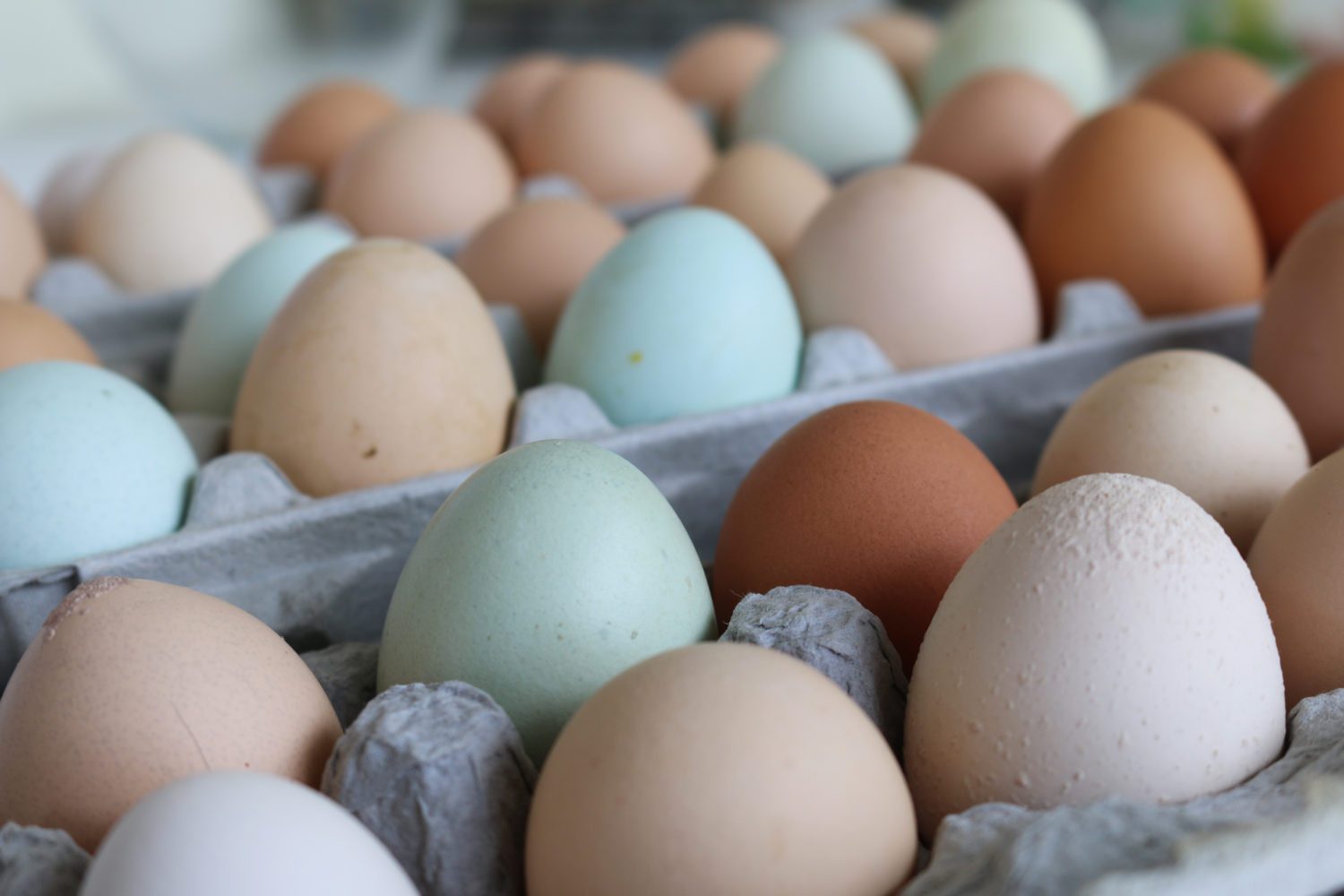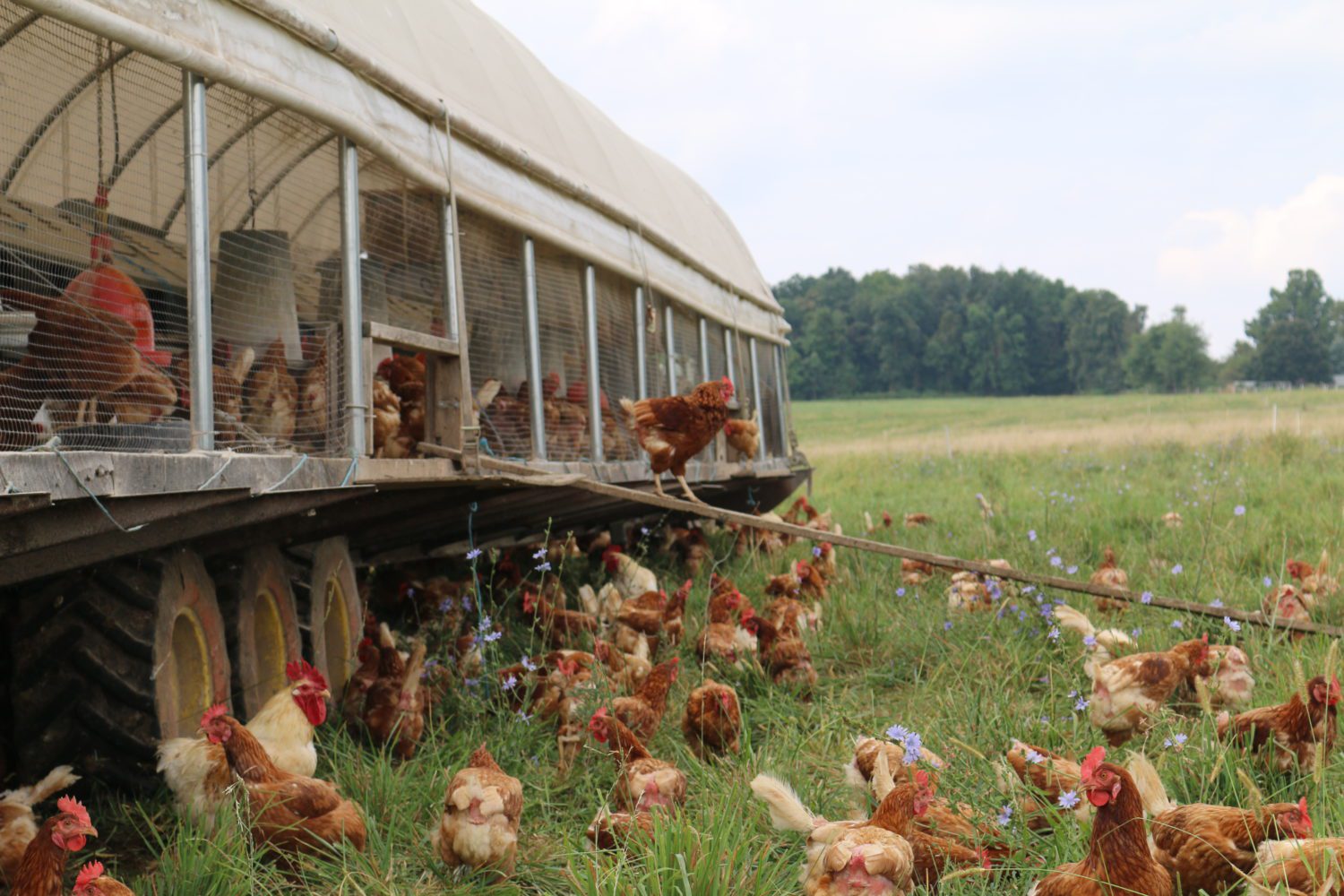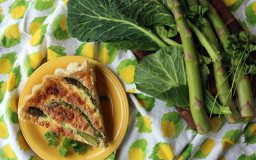We offer local eggs raised within 100 miles of our Distribution Center. These farms prioritize the humane treatment of their animals by providing them with open space to roam and feed, sheltering them from bad weather and predators, and feeding them a diet that is free of GMOs. Continue reading to learn the difference between “pasture raised”, “cage free”, and other common terms you’ll see when you shop.

Our Local Egg Suppliers:
- Benuel’s Eggs, Honeybrook, PA – 10.14 miles
- Family-run farm, pasture raised & non-GMO, some soy free & corn free varieties available
- SpringWood Farm, Kinzers, PA – 17.7 miles
- Family-run farm, pasture raised, non-GMO & soy free
- Stone Creek Farm, Mt. Bethel, PA – 67.3 miles
- Family-run farm, pasture raised, non-GMO & soy free
- Alderfer Eggs, Telford, PA – 27.7 miles
- Family-run farm, certified organic & non-GMO
- Meg’s Eggs, Upper Black Eddy, PA – 46.8 miles
- Pasture raised & soy free
- Highspire Hills Farm, Glenmoore, PA – 2.6 miles
- Family-run farm, birds are free to roam a uniqued designed poultry house with fresh air and sunshine, certified organic & soy free feed
- Hidden Nest Eggs, Lancaster County, PA – 32 miles
- Works with small-scale family farms in Lancaster County, PA to provide pasture raised, non-GMO & soy free eggs through Alderfer.

Chickens are free to roam the meadow at Pleasant Pasture Farm, “Benuel’s Eggs”
Egg Carton Labels
- Cage-Free means that chickens are not kept in battery cages, however the living conditions may be poor as they are packed into multi-level aviaries. The chickens will likely never step foot outdoors.
- Free-Range is a term regulated by the USDA, and it means that hens must be given continuous access to the outdoors (about 2 square feet per hen) during their production cycle. Although they have more space than “caged” and “cage-free” hens, this does not guarantee that a hen ever actually stepped foot outside, it just means there was a way for them to do so. This term also makes no guarantees about the diet of the hens, so they may be eating a corn and/or soy-based feed.
- Organic eggs come from uncaged hens that have access to the outdoors. Again, having access does not necessarily mean that the birds are actually roaming outdoors and consuming a diet of grass and bugs. (They may simply have access to an enclosed porch or a small patch of grass.) However, this designation guarantees that the birds were fed organic feed.
- Pasture-Raised birds spend most of their life outdoors, with a fair amount of space (some regulations mandate up to 108 square feet per bird) plus access to a barn. Many are able to eat a diet of worms, insects and grass, along with feed (which may or may not be organic). Unfortunately, Pasture-Raised is not a term regulated by the USDA, so the best way to trust this label is to investigate the source – which is easier to do when you buy from local farmers.







